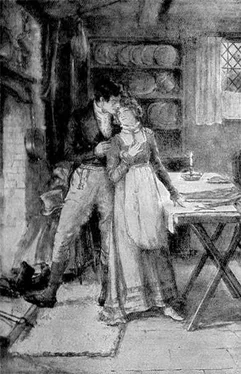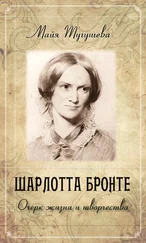Шарлотта Бронте - Shirley
Здесь есть возможность читать онлайн «Шарлотта Бронте - Shirley» весь текст электронной книги совершенно бесплатно (целиком полную версию без сокращений). В некоторых случаях можно слушать аудио, скачать через торрент в формате fb2 и присутствует краткое содержание. Год выпуска: 2014, Издательство: epubBooks Classics, Жанр: Классическая проза, на английском языке. Описание произведения, (предисловие) а так же отзывы посетителей доступны на портале библиотеки ЛибКат.
- Название:Shirley
- Автор:
- Издательство:epubBooks Classics
- Жанр:
- Год:2014
- ISBN:нет данных
- Рейтинг книги:3 / 5. Голосов: 1
-
Избранное:Добавить в избранное
- Отзывы:
-
Ваша оценка:
- 60
- 1
- 2
- 3
- 4
- 5
Shirley: краткое содержание, описание и аннотация
Предлагаем к чтению аннотацию, описание, краткое содержание или предисловие (зависит от того, что написал сам автор книги «Shirley»). Если вы не нашли необходимую информацию о книге — напишите в комментариях, мы постараемся отыскать её.
Shirley — читать онлайн бесплатно полную книгу (весь текст) целиком
Ниже представлен текст книги, разбитый по страницам. Система сохранения места последней прочитанной страницы, позволяет с удобством читать онлайн бесплатно книгу «Shirley», без необходимости каждый раз заново искать на чём Вы остановились. Поставьте закладку, и сможете в любой момент перейти на страницу, на которой закончили чтение.
Интервал:
Закладка:
"' Do not—do not pass! Stay with me awhile. Let us exchange a few quiet words. It is three days since I spoke to you alone. Such changes are cruel.'
"'I have no wish to be cruel,' she responded, softly enough. Indeed there was softness in her whole deportment—in her face, in her voice; but there was also reserve, and an air fleeting, evanishing, intangible.
"'You certainly give me pain,' said I. 'It is hardly a week since you called me your future husband and treated me as such. Now I am once more the tutor for you. I am addressed as Mr. Moore and sir. Your lips have forgotten Louis.'
"'No, Louis, no. It is an easy, liquid name—not soon forgotten.'
"'Be cordial to Louis, then; approach him—let him approach.'
"'I am cordial,' said she, hovering aloof like a white shadow.
"'Your voice is very sweet and very low,' I answered, quietly advancing. 'You seem subdued, but still startled.'
"'No—quite calm, and afraid of nothing,' she assured me.
"'Of nothing but your votary.'
"I bent a knee to the flags at her feet.
"'You see I am in a new world, Mr. Moore. I don't know myself; I don't know you. But rise. When you do so I feel troubled and disturbed.'
"I obeyed. It would not have suited me to retain that attitude long. I courted serenity and confidence for her, and not vainly. She trusted and clung to me again.
"'Now, Shirley,' I said, 'you can conceive I am far from happy in my present uncertain, unsettled state.'
"'Oh yes, you are happy!' she cried hastily. 'You don't know how happy you are. Any change will be for the worse.'
"'Happy or not, I cannot bear to go on so much longer. You are too generous to require it.'
"'Be reasonable, Louis; be patient! I like you because you are patient.'
"'Like me no longer, then; love me instead. Fix our marriage day; think of it to–night, and decide.'
"She breathed a murmur, inarticulate yet expressive; darted, or melted, from my arms—and I lost her."
Chapter XXXVII
The Winding-up
Yes, reader, we must settle accounts now. I have only briefly to narrate the final fates of some of the personages whose acquaintance we have made in this narrative, and then you and I must shake hands, and for the present separate.
Let us turn to the curates—to the much–loved, though long–neglected. Come forward, modest merit! Malone, I see, promptly answers the invocation. He knows his own description when he hears it.
No, Peter Augustus; we can have nothing to say to you. It won't do. Impossible to trust ourselves with the touching tale of your deeds and destinies. Are you not aware, Peter, that a discriminating public has its crotchets; that the unvarnished truth does not answer; that plain facts will not digest? Do you not know that the squeak of the real pig is no more relished now than it was in days of yore? Were I to give the catastrophe of your life and conversation, the public would sweep off in shrieking hysterics, and there would be a wild cry for sal–volatile and burnt feathers. "Impossible!" would be pronounced here; "untrue!" would be responded there; "inartistic!" would be solemnly decided. Note well. Whenever you present the actual, simple truth, it is, somehow, always denounced as a lie—they disown it, cast it off, throw it on the parish; whereas the product of your own imagination, the mere figment, the sheer fiction, is adopted, petted, termed pretty, proper, sweetly natural—the little, spurious wretch gets all the comfits, the honest, lawful bantling all the cuffs. Such is the way of the world, Peter; and as you are the legitimate urchin, rude, unwashed, and naughty, you must stand down.
Make way for Mr. Sweeting.
Here he comes, with his lady on his arm—the most splendid and the weightiest woman in Yorkshire—Mrs. Sweeting, formerly Miss Dora Sykes. They were married under the happiest auspices, Mr. Sweeting having been just inducted to a comfortable living, and Mr. Sykes being in circumstances to give Dora a handsome portion. They lived long and happily together, beloved by their parishioners and by a numerous circle of friends.
There! I think the varnish has been put on very nicely.
Advance, Mr. Donne.
This gentleman turned out admirably—far better than either you or I could possibly have expected, reader. He, too, married a most sensible, quiet, lady–like little woman. The match was the making of him. He became an exemplary domestic character, and a truly active parish priest (as a pastor he, to his dying day, conscientiously refused to act). The outside of the cup and platter he burnished up with the best polishing–powder; the furniture of the altar and temple he looked after with the zeal of an upholsterer, the care of a cabinet–maker. His little school, his little church, his little parsonage, all owed their erection to him; and they did him credit. Each was a model in its way. If uniformity and taste in architecture had been the same thing as consistency and earnestness in religion, what a shepherd of a Christian flock Mr. Donne would have made! There was one art in the mastery of which nothing mortal ever surpassed Mr. Donne: it was that of begging. By his own unassisted efforts he begged all the money for all his erections. In this matter he had a grasp of plan, a scope of action quite unique. He begged of high and low—of the shoeless cottage brat and the coroneted duke. He sent out begging–letters far and wide—to old Queen Charlotte, to the princesses her daughters, to her sons the royal dukes, to the Prince Regent, to Lord Castlereagh, to every member of the ministry then in office; and, what is more remarkable, he screwed something out of every one of these personages. It is on record that he got five pounds from the close–fisted old lady Queen Charlotte, and two guineas from the royal profligate her eldest son. When Mr. Donne set out on begging expeditions, he armed himself in a complete suit of brazen mail. That you had given a hundred pounds yesterday was with him no reason why you should not give two hundred to–day. He would tell you so to your face, and, ten to one, get the money out of you. People gave to get rid of him. After all, he did some good with the cash. He was useful in his day and generation.
Perhaps I ought to remark that on the premature and sudden vanishing of Mr. Malone from the stage of Briarfield parish (you cannot know how it happened, reader; your curiosity must be robbed to pay your elegant love of the pretty and pleasing), there came as his successor another Irish curate, Mr. Macarthey. I am happy to be able to inform you, with truth , that this gentleman did as much credit to his country as Malone had done it discredit. He proved himself as decent, decorous, and conscientious as Peter was rampant, boisterous, and― This last epithet I choose to suppress, because it would let the cat out of the bag. He laboured faithfully in the parish. The schools, both Sunday and day schools, flourished under his sway like green bay trees. Being human, of course he had his faults. These, however, were proper, steady–going, clerical faults—what many would call virtues. The circumstance of finding himself invited to tea with a Dissenter would unhinge him for a week. The spectacle of a Quaker wearing his hat in the church, the thought of an unbaptized fellow–creature being interred with Christian rites—these things could make strange havoc in Mr. Macarthey's physical and mental economy. Otherwise he was sane and rational, diligent and charitable.
I doubt not a justice–loving public will have remarked, ere this, that I have thus far shown a criminal remissness in pursuing, catching, and bringing to condign punishment the would–be assassin of Mr. Robert Moore. Here was a fine opening to lead my willing readers a dance, at once decorous and exciting—a dance of law and gospel, of the dungeon, the dock, and the "dead–thraw." You might have liked it, reader, but I should not. I and my subject would presently have quarrelled, and then I should have broken down. I was happy to find that facts perfectly exonerated me from the attempt. The murderer was never punished, for the good reason that he was never caught—the result of the further circumstance that he was never pursued. The magistrates made a shuffling, as if they were going to rise and do valiant things; but since Moore himself, instead of urging and leading them as heretofore, lay still on his little cottage–couch, laughing in his sleeve, and sneering with every feature of his pale, foreign face, they considered better of it, and after fulfilling certain indispensable forms, prudently resolved to let the matter quietly drop, which they did.
Читать дальшеИнтервал:
Закладка:
Похожие книги на «Shirley»
Представляем Вашему вниманию похожие книги на «Shirley» списком для выбора. Мы отобрали схожую по названию и смыслу литературу в надежде предоставить читателям больше вариантов отыскать новые, интересные, ещё непрочитанные произведения.
Обсуждение, отзывы о книге «Shirley» и просто собственные мнения читателей. Оставьте ваши комментарии, напишите, что Вы думаете о произведении, его смысле или главных героях. Укажите что конкретно понравилось, а что нет, и почему Вы так считаете.











